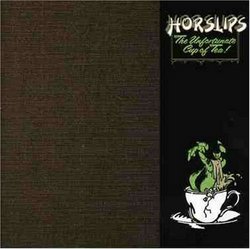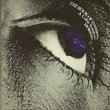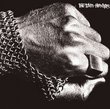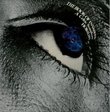| All Artists: Horslips Title: Unfortunate Cup of Tea Members Wishing: 0 Total Copies: 0 Label: Demon Records UK Release Date: 3/7/2006 Album Type: Import Genres: Folk, Pop, Rock, Metal Styles: British & Celtic Folk, Folk Rock Number of Discs: 1 SwapaCD Credits: 1 UPC: 740155901424 |
Search - Horslips :: Unfortunate Cup of Tea
 | Horslips Unfortunate Cup of Tea Genres: Folk, Pop, Rock, Metal Reissue of the 1975 release and fourth album for Ireland's most acclaimed folk-rock and progressive band. 9 tracks including 'Ring-A-Rosey' and 'Flirting In The Shadows'. 2000 release. Standard jewel case. |
Larger Image |
CD DetailsSynopsis
Album Description Reissue of the 1975 release and fourth album for Ireland's most acclaimed folk-rock and progressive band. 9 tracks including 'Ring-A-Rosey' and 'Flirting In The Shadows'. 2000 release. Standard jewel case. Similar CDs
|
CD ReviewsAnother music from a different dancehall John L Murphy | Los Angeles | 07/25/2006 (2 out of 5 stars) "Horslips on their preceding album, Dancehall Sweethearts, attempted with mixed success to merge the folkier-proggier rock of their second album The Tain with the proggy-folk of their Happy to Meet debut. But, this, their fourth LP, sounds like the band had lost their way with, well, "unfortunate" results. I tried hard, but this disappointed me. I'd give it 2 1/2 stars if I could, but it'd have to rank below the three I give Dancehall. The expanding Jethro Tullish riffage of their preceding album still managed to keep the Irish band's own ambitious blend a bit distinctive, although it was becoming blander.
Unfortunate Cup of Tea's best feature is its memorable title and its album art of the band trying to stuff a man-sized green monster into a stereotypical thatched cottage. Perhaps this symbolizes the group's belief that they were subverting Oirish stereotypes. They had succeeded so far on previous albums, but they run out of energy here. Vocals are the best feature, but even they sound rather tired and dispirited. The band seems tuckered out--their grueling years on the road may have been too much too soon. The Tull influence rears more derivatively than before as heard with the flute breakout on Self-Defense. Santana finds strong echoes in the langourous The Snake's Farewell. Most depressingly, Average White Band sounds like they could've issued the opening track, the interminable If That's What You Want. This stab at disco, with female (or really high-pitched male) backup chorus, thumping beats, and a tattered remnant of mandolin to betray its Irish provenance, is bewildering. For a few seconds, if you are a fan familiar with their music so far, you listen in sheer surprise at this jarring shift onto another dancefloor than their usual showband haunts; after a few minutes, you can't believe the band keeps the same steady chug-chug for still more minutes. The remaining songs wander about. Those on what would have been side one, tracks 2,3,4 are merely passable at best. High Volume Love has a few moments that are sprightlier, but like the opening and the Self Defense, it's a track that far exceeeds its welcome. Many songs here pass five minutes and seem twice as long. Side 2 is a bit better. There's more touches of traditional instrumentation here. Flutters of fiddle or flute, hints of whistles, more electric mandolin dart in and alas out of some tunes, but such touches are few compared with the middling mid-tempo and too pedestrian soft-rock of much of this album. I listened to the remaster of this, and it does come across with clarity. I wish more of the songs merited the studio revitalization. The title track and Turn Your Face manage some tunefulness thanks to greater grounding in folkish foundations; the concluding Everything Will Be Alright also mixes more familiar elements akin to their third album's approach. Dancehall Sweethearts had been faulted for more uninspired rawk tripping up the band's folky-hippie nimbleness; these genre-clashing moments are exponentially prolonged over this 47-minute album. Granted it's at one of the nadirs of rock, 1974, but still, the lack of planning and editing that seems to have gone into the sequencing and the styles here makes me wonder how such a band could reach not only before this such strengths on their first two records but also on the two following, the trad Drive the Cold Winter Away and their pinnacle IMHO The Book of Invasions. After those, the later 70s took their toll as the steadier stadium-pitched rock began to overpower as often as it enhanced the folk increasingly on their last three albums. Such unevenness in their career is captured and summed up on Unfortunate Cup." |




